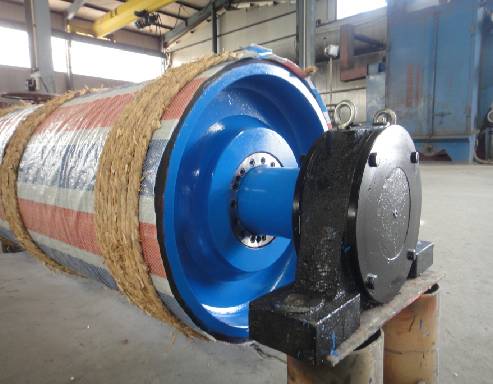 Afrikaans
Afrikaans  Albanian
Albanian  Amharic
Amharic  Arabic
Arabic  Armenian
Armenian  Azerbaijani
Azerbaijani  Basque
Basque  Belarusian
Belarusian  Bengali
Bengali  Bosnian
Bosnian  Bulgarian
Bulgarian  Catalan
Catalan  Cebuano
Cebuano  Corsican
Corsican  Croatian
Croatian  Czech
Czech  Danish
Danish  Dutch
Dutch  English
English  Esperanto
Esperanto  Estonian
Estonian  Finnish
Finnish  French
French  Frisian
Frisian  Galician
Galician  Georgian
Georgian  German
German  Greek
Greek  Gujarati
Gujarati  Haitian Creole
Haitian Creole  hausa
hausa  hawaiian
hawaiian  Hebrew
Hebrew  Hindi
Hindi  Miao
Miao  Hungarian
Hungarian  Icelandic
Icelandic  igbo
igbo  Indonesian
Indonesian  irish
irish  Italian
Italian  Japanese
Japanese  Javanese
Javanese  Kannada
Kannada  kazakh
kazakh  Khmer
Khmer  Rwandese
Rwandese  Korean
Korean  Kurdish
Kurdish  Kyrgyz
Kyrgyz  Lao
Lao  Latin
Latin  Latvian
Latvian  Lithuanian
Lithuanian  Luxembourgish
Luxembourgish  Macedonian
Macedonian  Malgashi
Malgashi  Malay
Malay  Malayalam
Malayalam  Maltese
Maltese  Maori
Maori  Marathi
Marathi  Mongolian
Mongolian  Myanmar
Myanmar  Nepali
Nepali  Norwegian
Norwegian  Norwegian
Norwegian  Occitan
Occitan  Pashto
Pashto  Persian
Persian  Polish
Polish  Portuguese
Portuguese  Punjabi
Punjabi  Romanian
Romanian  Russian
Russian  Samoan
Samoan  Scottish Gaelic
Scottish Gaelic  Serbian
Serbian  Sesotho
Sesotho  Shona
Shona  Sindhi
Sindhi  Sinhala
Sinhala  Slovak
Slovak  Slovenian
Slovenian  Somali
Somali  Spanish
Spanish  Sundanese
Sundanese  Swahili
Swahili  Swedish
Swedish  Tagalog
Tagalog  Tajik
Tajik  Tamil
Tamil  Tatar
Tatar  Telugu
Telugu  Thai
Thai  Turkish
Turkish  Turkmen
Turkmen  Ukrainian
Ukrainian  Urdu
Urdu  Uighur
Uighur  Uzbek
Uzbek  Vietnamese
Vietnamese  Welsh
Welsh  Bantu
Bantu  Yiddish
Yiddish  Yoruba
Yoruba  Zulu
Zulu Exploring the Benefits and Applications of Rubber Pulleys in Modern Mechanical Systems Industries
Understanding Rubber Pulleys Versatility and Applications
Rubber pulleys have become indispensable components in various mechanical systems due to their unique properties and versatility. Unlike traditional metal pulleys, rubber pulleys offer a range of benefits that make them ideal for specific applications, especially where friction, noise reduction, and elasticity are critical factors.
What Are Rubber Pulleys?
Rubber pulleys are wheels made from rubber or rubber-like materials, designed to facilitate the transmission of power and motion within a mechanical system. They come in various shapes and sizes, depending on their intended use. Common applications include conveyor systems, automotive engines, and industrial machinery.
Advantages of Rubber Pulleys
One of the most significant advantages of rubber pulleys is their ability to provide enhanced grip. The rubber material ensures a high coefficient of friction, allowing for effective transfer of power without slipping. This is particularly beneficial in applications where belts need to maintain a secure grip without the risk of slippage, leading to better performance and efficiency.
Noise reduction is another key benefit. Rubber possesses damping properties that help mitigate vibrations and noise generated during operation. This is particularly crucial in environments where noise levels are a concern, such as in residential areas or near workplaces that require minimal disturbances. The use of rubber pulleys can significantly enhance the overall acoustic comfort of a machine.
Additionally, rubber pulleys are lightweight compared to their metal counterparts
. This characteristic contributes to lower rotational inertia, allowing machinery to start and stop more efficiently. It also results in reduced energy consumption, making rubber pulleys an environmentally friendly choice in the long run.Applications of Rubber Pulleys
rubber pulley

Rubber pulleys are widely used across various industries. In the automotive sector, they are commonly found in engine compartments, where they help drive accessories like alternators and water pumps. Their ability to absorb shocks and vibrations contributes to the longevity and efficiency of the engine.
In conveyor systems, rubber pulleys play a crucial role in material handling. They facilitate the movement of goods while ensuring that the belts remain firmly in place, reducing the risk of material loss or damage during transit. This ensures that operations run smoothly, enhancing productivity in warehouses and manufacturing plants.
Rubber pulleys are also used in industrial machinery, including textile and paper-making machines. Their ability to operate quietly and efficiently makes them suitable for environments where precision and performance are essential. Furthermore, the resilience of rubber allows these pulleys to withstand harsh conditions, including exposure to chemicals and extreme temperatures.
Considerations When Choosing Rubber Pulleys
When selecting rubber pulleys for a specific application, several factors need to be considered. The type of rubber material, its hardness, and the specific requirements of the machinery are all crucial elements. Additionally, understanding the operating conditions, such as potential exposure to heat, moisture, and chemicals, can influence the choice of pulley material.
It’s also essential to consider the pulley’s size and design to ensure compatibility with other components in the system. Proper installation and maintenance are vital to ensure the longevity and effectiveness of rubber pulleys, as neglect can lead to premature wear and failure.
Conclusion
In conclusion, rubber pulleys represent a versatile and efficient solution for various mechanical applications. Their unique properties offer distinct advantages over traditional metal pulleys, including enhanced grip, noise reduction, and lightweight construction. As industries continue to evolve, the demand for innovative solutions like rubber pulleys will only grow, making them a critical component in modern engineering and manufacturing processes. Whether in automotive, industrial, or manufacturing settings, rubber pulleys play an essential role in ensuring operations run smoothly and efficiently.
-
Revolutionizing Conveyor Reliability with Advanced Rubber Lagging PulleysNewsJul.22,2025
-
Powering Precision and Durability with Expert Manufacturers of Conveyor ComponentsNewsJul.22,2025
-
Optimizing Conveyor Systems with Advanced Conveyor AccessoriesNewsJul.22,2025
-
Maximize Conveyor Efficiency with Quality Conveyor Idler PulleysNewsJul.22,2025
-
Future-Proof Your Conveyor System with High-Performance Polyurethane RollerNewsJul.22,2025
-
Driving Efficiency Forward with Quality Idlers and RollersNewsJul.22,2025





























